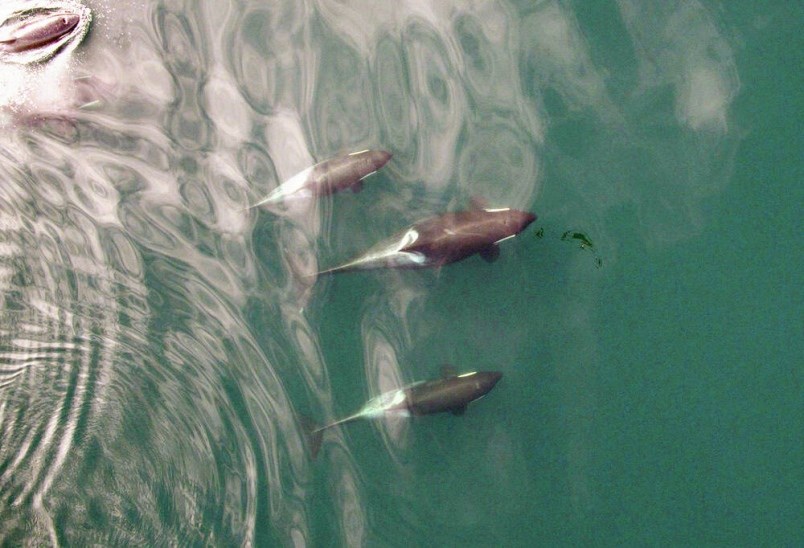Springer, the orca orphan who took a shining to people and their boats and captured the hearts of people around the globe nearly two decades ago, is now a mother of two and is expecting another calf.
The orca, also known as A73 and a member of the northern residents, was discovered in early 2002 separated from her pod and alone after the loss of her mother.
She was a two-year-old at the time and became attached to humans and their boats, sighted in several areas hanging around marinas, rubbing up against vessels and allowing people — even dogs — to touch her nose.
She would follow hand signals to roll, “like she was auditioning for Seaworld … people were her entertainment,” said one observer at the time.
An unprecedented rescue and rehabilitation by scientists and government officials followed in June 2002 as Springer was hoisted by sling into a holding pen off Manchester, Washington.
She was eating 100 kilograms of salmon a day and gained weight. She left Washington a month later aboard a boat headed for the waters off northern Vancouver Island. Scientists released Springer as her pod swam by and vocalizations indicated Springer and her pod recognized each other.
She has flourished since then.
According to a report by Sarah Wilson and the B.C. Cetacean Sightings Network, Springer continues to travel with her pod and two offspring, Spirit (A104), born in 2013, and Storm (A116) who arrived in 2017.
Drone footage in August showed Springer is pregnant again.
Observers are delighted with the news after finding another northern resident, Sonora (A42), is pregnant and several other females may be with calf but that’s unconfirmed. The news follows three possible pregnancies in the southern resident population photographed over the summer.
The northern resident population, which frequent the Johnstone Strait area during the summer, is estimated to be about 300. Southern resident orcas, meanwhile, have dipped to 73.
Their numbers continue to be threatened by vessel noise, which impedes their echo-location abilities to find food, as well as pollution and the availability of salmon.
The B.C. Cetacean Network said the public can help Springer and her family through a symbolic adoption.
Donations support research, conservation and public engagement activities that address the threats to orcas.
See killerwhale.org for more.



